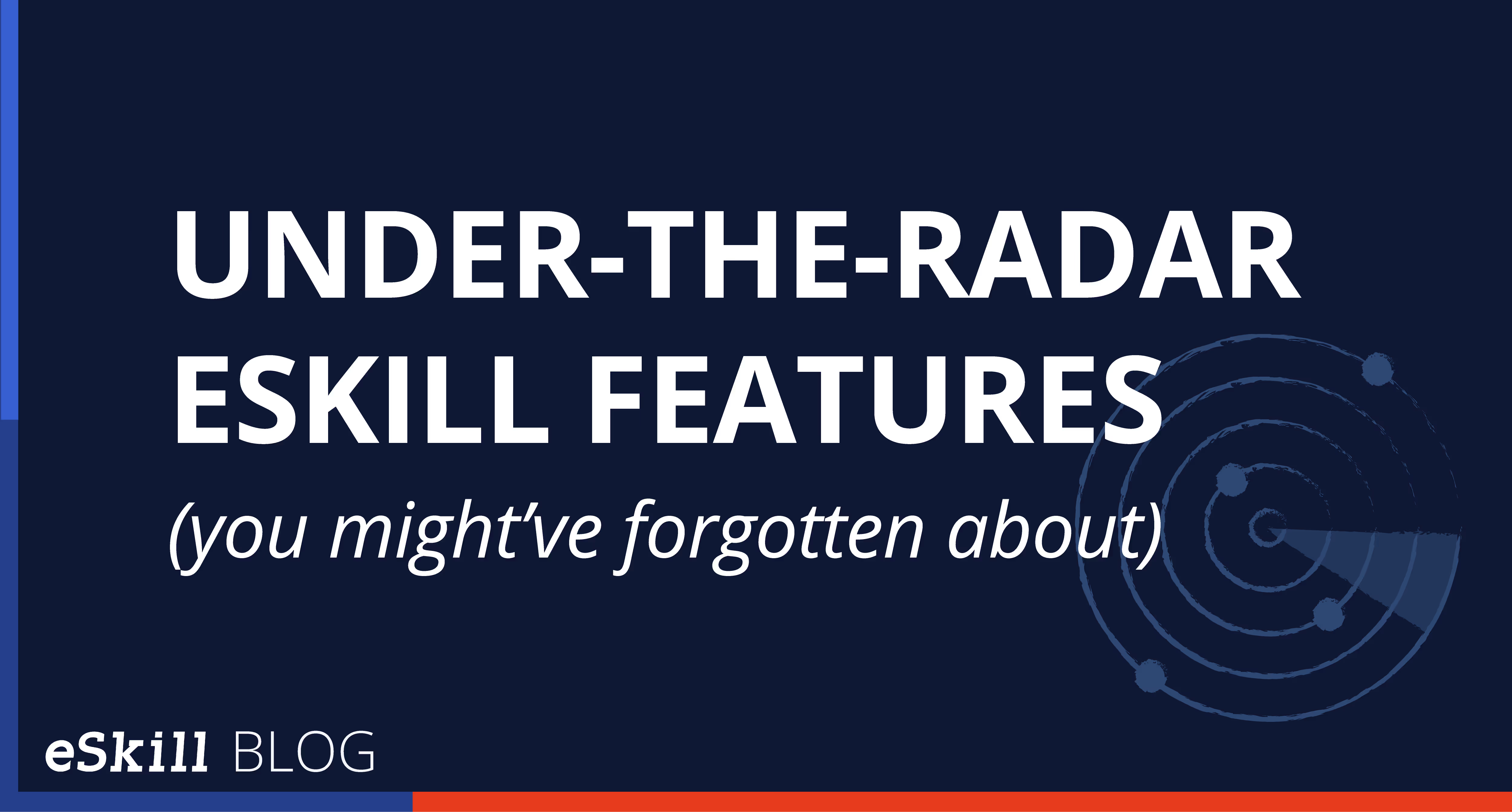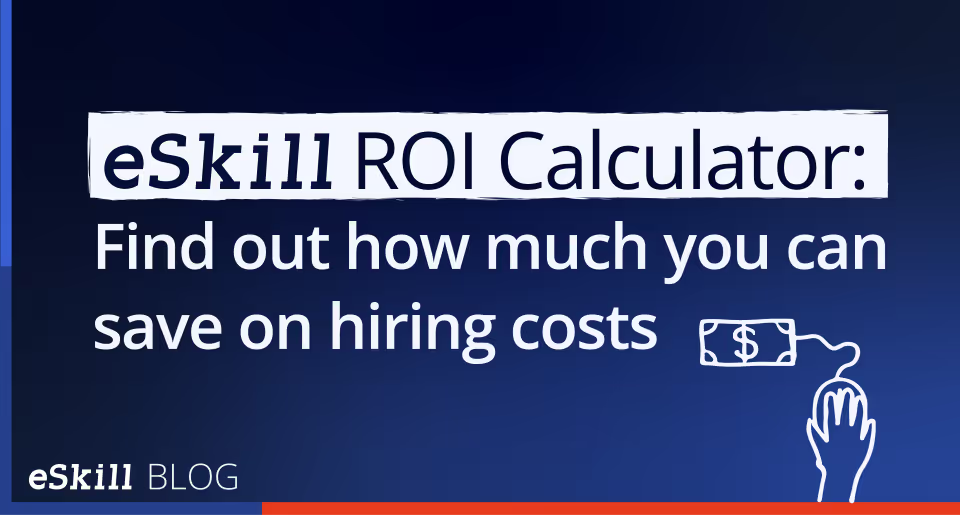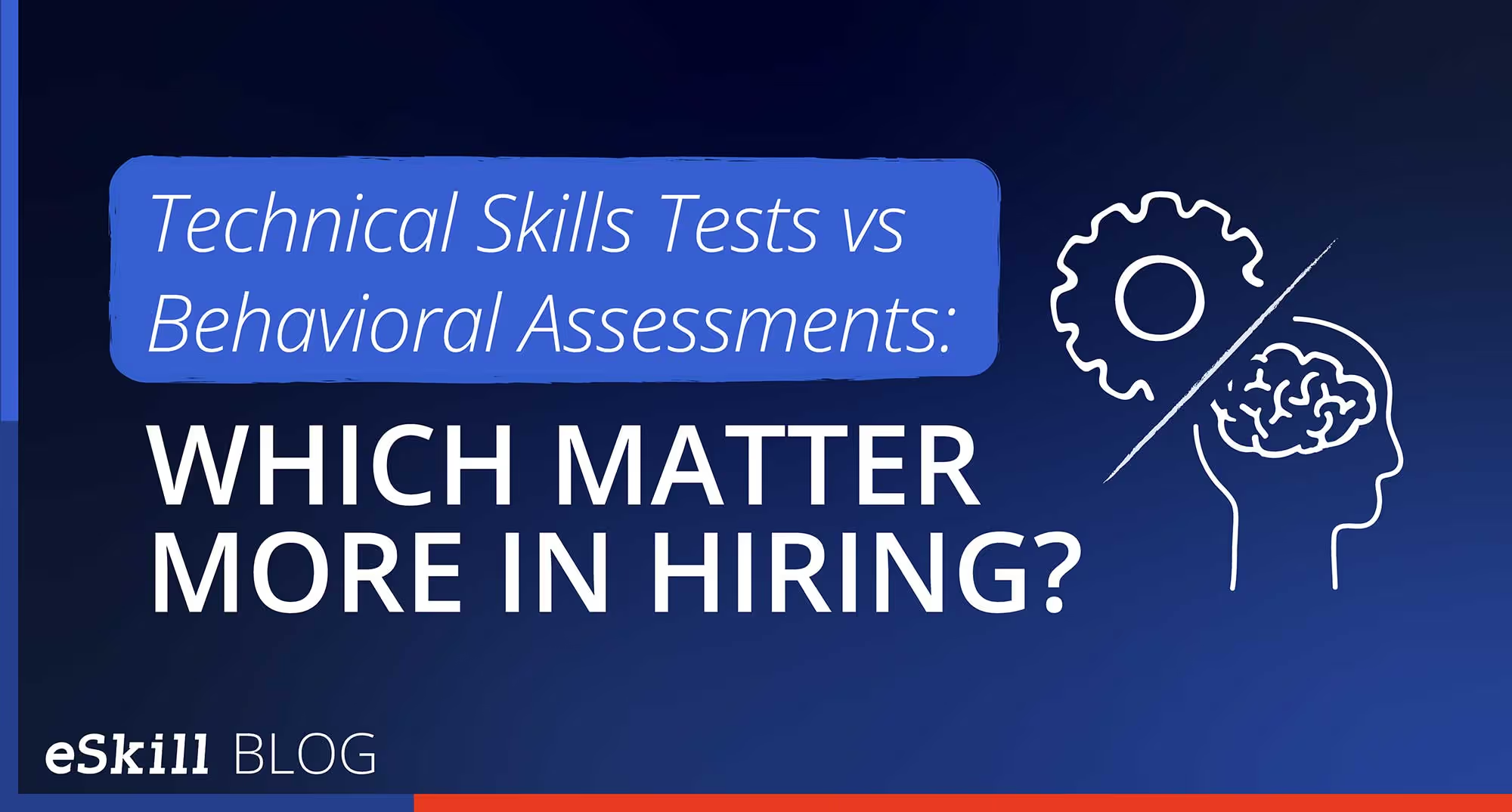Goodbye college degrees, hello skills testing. According to SHRM, only 17.8% of job ads required a college degree in 2024. In a study conducted by Harvard, 74% of hiring managers prefer to hire talent based on skills and relevant experiences. While college degrees are certainly important and expected for some positions, they’re no longer a must-have requirement for hiring.
If educational requirements are moving out and skills are moving in, what’s a hiring manager to do? One tool to help hiring teams adapt to the changing hiring landscape is pre-hire assessments. Pre-hire assessments measure a candidate’s skill set to understand if they’re qualified for a job.
However, not all pre-hire assessments are the same. Some measure hard skills while others measure behavioral styles. Some are standardized, out-of-the-box tests while others are customized to a specific job or organization.
So which approach is right for your company? Here is a breakdown of the pros and cons of standard vs. customized pre-hire tests.
Standardized Pre-Hire Tests
Behavioral tests are all standardized, so for this exercise we’ll examine hard skills tests. Standardized hard skills tests are like standardized tests that you took in school. Like an ACT or SAT, they are tests that measure a general array of skills across a wide pool of test-takers. This means they’re easy to setup, easy to distribute, and easy to measure. Since you have a wide pool of test takers all measured on the same questions, it’s easy to identify top performers.
On the flip side, these tests tend to be one-size-fits-all and often don’t measure skills specific to an individual team or company well enough to measure concrete success. Think back to your standardized tests in schools: did those logic puzzles or reading comprehension questions really measure your success in your career field?
It boils down to this: standardized tests do a great job of measuring a baseline, general skillset required for a position, but they often don’t get specific enough to measure skills required for complex, on-the-job tasks. Furthermore, candidates tend to think that standardized tests that aren’t applicable to the position they’re applying to tend to be a waste of time.
Setup: Minimal. Standardized tests are pre-baked, out-of-the-box, and ready to go.
Measurement: Straightforward. Correct answers to standardized tests are already provided to an assesor. Plus, you can easily compare candidate performance against a wider pool.
Skills: Common skills like Excel, attention to detail, cognitive ability, typing, math, etc.
Jobs: White collar, entry-level. Accountants, admins, data analytics, etc.
Industries: Financial services, call centers, hospitality, staffing agencies.
Outcomes: Easy measurement of basic skills required for common roles.
Customized Pre-Hire Tests
Customized tests are built by a hiring team to measure a candidate’s skills for a particular job or organizational requirement. They can be built a variety of ways: mixing and matching questions from a pre-existing test library, uploading existing questions to a digitized online assessment, or written completely from scratch. They can take time to setup, but once they’re in place, they precisely measure the exact skills required for on-the-job success.
Imagine you’re hiring for a highly technical, complex job role like an electrical technician. Standardized tests on Excel aptitude or logical thinking might not accurately measure their ability. And behavioral tests that give you measures on factors like extraversion or strategic thinking may not be predictive of actual job performance. But a custom test that asks questions like: “identify a wire stripper vs. a staple extractor”, “explain these numbers on a multimeter”, or “outline what is wrong on this electrical panel,” are much more accurate at measuring a job candidate’s specific ability before you make them an offer.
You can even mix and match question types on your custom assessment to get a full view of your hire. Does your electrical technician need to know how to use scheduling or back-office software? Add questions covering these fields to get a full view of your candidate. Plus, it may help you identify areas that need additional training post-hire.
While creating these custom tests might sound daunting, a good pre-hire assessment provider will work with you to identify necessary skill requirements and work with you to create a test that accurately measures what’s important.
Setup: Varying degrees of effort. Can mix and match questions from a library, upload existing paper questions, or write from scratch.
Measurement: Extremely precise. While you may not have a massive population of test-takers across industries to compare to, it measures exactly what is required for a job role.
Skills: Virtually anything. Create custom tests to measure any hard skill required for the job. Leverage multiple choice, free response, simulations, and more to test exactly what is needed.
Industries: Manufacturing, construction, healthcare, government, utility, transportation, law firms, education.
Jobs: Blue-collar, highly skilled. Engineers, mechanics, plant managers, pilots, technicians, etc.
Outcomes: Very accurate measurement of skills required for specific job or company requirements.
Standardized or custom tests, what’s the right answer? Well, it depends on what you’re hiring for. Do you want to test general skills associated with entry-level, white-collar jobs? Standardized assessments will work just fine to measure a baseline level indicative of success.
Are you hiring for a technical job where hard skills are a must like an engineer, mechanic, or technician? Custom tests that measure job-specific skills are necessary for finding the right candidate. By ensuring your pre-hire assessment platform can handle both standardized and custom tests, you can confidently test for the right skills to hire consistently great candidates.
Get started with eSkill today and eliminate bad hires.

Get ademo.






